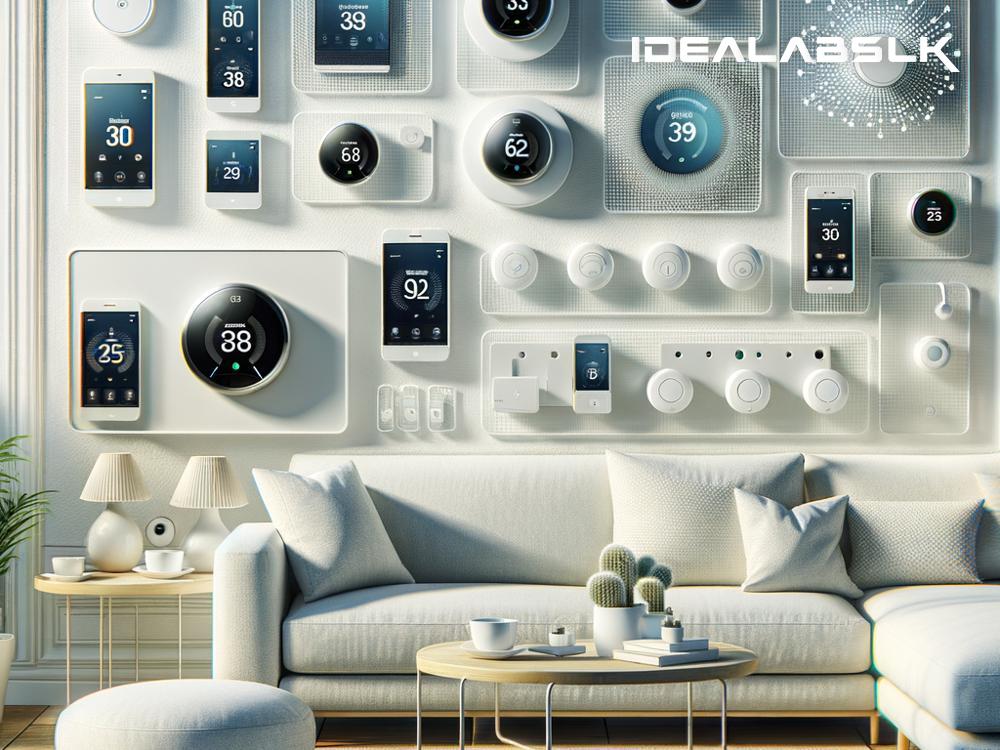When it comes to decking out your home with the latest tech, AI-driven gadgets are where it's at. From thermostats that learn your schedule to lights that adjust based on the time of day, these smart devices are designed to make your life easier and your home more comfortable. Two of the biggest players in the smart home arena are Nest and SmartThings. But which one offers the best gadgets for a truly smart home? Let's dive in and compare.
What is Nest?
Nest is a brand that has become almost synonymous with smart home technology. It's well-known for its smart thermostats, which learn your heating and cooling preferences over time and adjust themselves accordingly. But that's not all; Nest also offers smart smoke detectors, security cameras, and doorbells. All these gadgets are designed to work together seamlessly, providing not just comfort but also an enhanced level of security for your home.
What is SmartThings?
SmartThings, on the other hand, is a bit different. Owned by Samsung, SmartThings is more of a whole-home solution. It's not just about one or two smart gadgets; it's about connecting all sorts of devices across your home into a single, cohesive system. This includes everything from lights and locks to thermostats and speakers. The SmartThings hub is the brain of the operation, allowing all these devices to communicate with each other and be controlled through a single app.
Nest vs. SmartThings: Key Differences
-
Ecosystem vs. Platform: The main difference between Nest and SmartThings is how they approach the concept of a smart home. Nest offers a tightly integrated ecosystem of products that are designed to work together right out of the box. SmartThings, however, is more of a platform that connects a wide range of compatible devices from various brands.
-
Ease of Use: Because of its focus on a smaller, more integrated product line, Nest can be simpler to set up and use. Its devices are designed to work together effortlessly, making it a great choice for those who want a smart home but don't want to tinker too much. SmartThings, while offering greater versatility, can be a bit more complex, requiring more initial setup and customization.
-
Compatibility: SmartThings shines when it comes to compatibility. With support for a wider range of devices and brands, it's the go-to choice for those who want to mix and match their smart home gadgets or who already have devices they want to incorporate into their smart home system. Nest is more limited in this regard, primarily supporting its own products, though it does offer some compatibility with other brands through the Works with Nest program.
-
Security: Both brands offer options for home security. Nest's security cameras and doorbells are well-regarded, offering high-quality video and smart features like facial recognition. SmartThings, with its more open platform, allows for a broader range of security devices, including sensors, alarms, and cameras from various brands, giving you more flexibility in setting up your home security system.
Which is Better for Your Smart Home?
The answer really depends on what you're looking for in a smart home.
-
Choose Nest if you value simplicity and ease of use. It's perfect for those who want a seamless, integrated experience with minimal setup. Nest's learning thermostat is a standout product that can help save on energy bills, and its security products are top-notch.
-
Go with SmartThings if you love tinkering and want a system that’s as flexible as your needs. It's ideal for tech enthusiasts and those who already have smart devices they wish to integrate into a more extensive system. The ability to work with a wide range of devices makes SmartThings a powerful tool for creating a truly connected home.
Conclusion
Whether you lean towards the seamless experience of Nest or the customizable, expansive ecosystem of SmartThings, there's no doubt that both platforms offer impressive ways to make your home smarter. The best choice comes down to your personal preferences and what you want your smart home to do for you. As these technologies continue to evolve, it's exciting to think about how much smarter and more intuitive our homes could become. So, take the leap, choose the platform that resonates with you, and start enjoying the convenience and comfort of a smart home.

